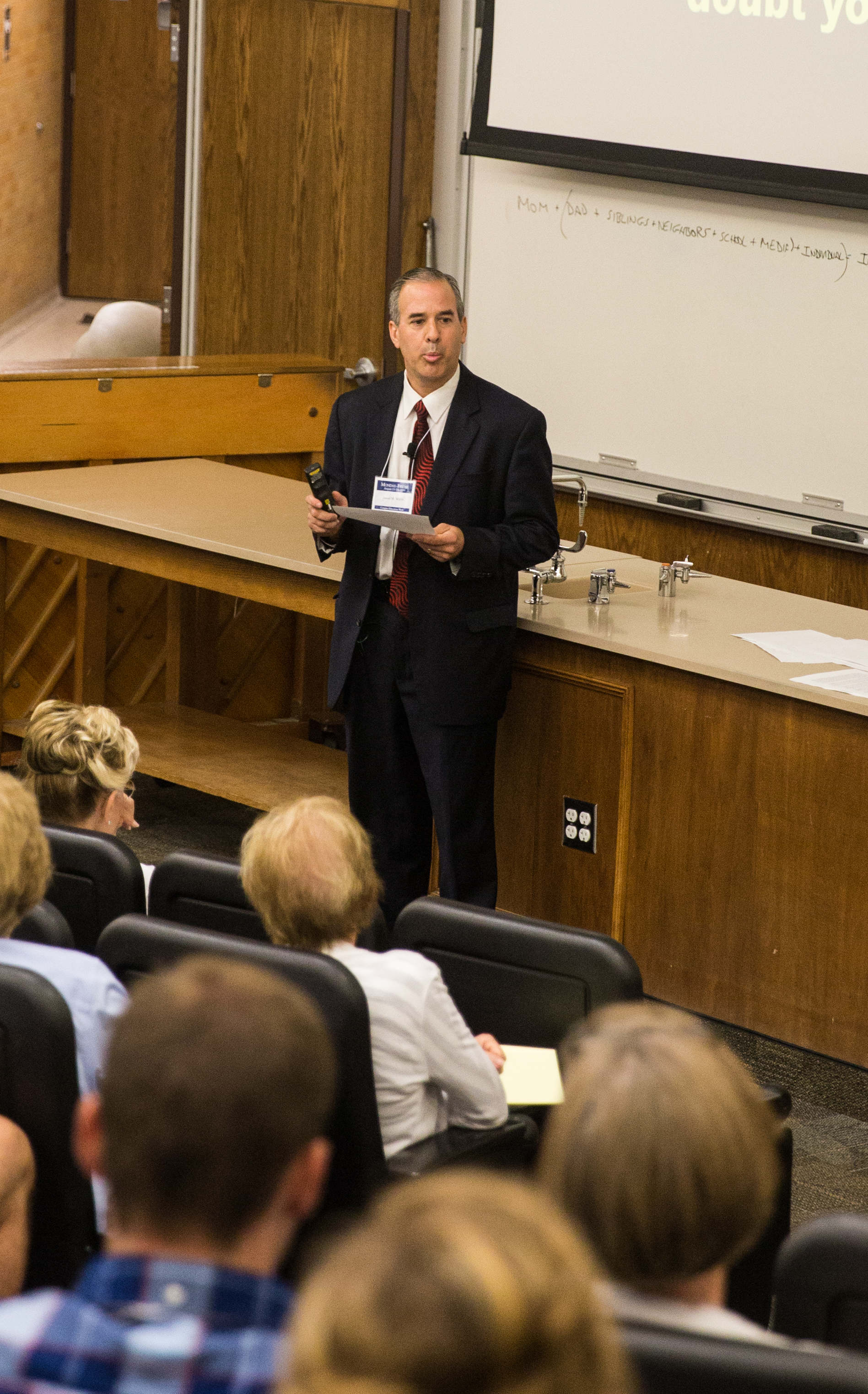Jason Webb works as a mental health drug addiction counselor. He drew upon insights from his occupation as he spoke about the difference of progression and perfection during his 2016 Education Week address.

“Some of you have been taught that you have to be perfect, on your own without your Savior, and we demand so much of ourselves,” Webb said.
Webb explained that perfection is to be attained only through the Savior. 3 Nephi 12:48 of the Book of Mormon states, “Therefore I would that ye should be perfect even as I, or your Father who is in heaven is perfect.”
Perfection is not demanded of us today, it is a process to be achieved line upon line, Webb said.
“I find it interesting that the temple recommend questions ask if we accept Jesus as our Savior,” Webb said. “Meaning we accept we are sinful people, we are imperfect and we need a Savior to make up the difference for us and help us back to Heaven.”
There are certain aspects of our lives that make it more difficult to make progress. Webb noted that society tends to be fake and many put on “masks of perfection.”
The problem with these “masks of perfection” is the tendency many have to judge the perceived perfections of others with the individual’s own weaknesses, according to Webb.
“People who entertain those thoughts … become hopeless not based on reality,” Webb said.
He explained right now is not the day of judgment, right now is practice time.
“Lighten up a little bit on yourselves, don’t be so hard on yourselves, allow yourselves to stand up and move forward,” Webb said.
Repentance is an important step in using the atonement. In Webb’s experience, many people feel they can’t repent of sins they’ve made repeatedly because it marks them as imperfect. Webb said, even when repentance is heartfelt, it’s possible to make the same mistake again as imperfect humans.
God would rather us go on our knees every single night repeating the same thing than to not return to him, explained Webb.
“You can’t be forgiven for sins you don’t repent of,” Webb said.
Webb focused on how using the atonement can help people achieve greater purpose and happiness. He explained to find happiness, one’s actions must be in line with God’s desires.
Webb shared a quote from President Uchtdorf’s October 2014 general conference address.
“Yes, God loves you this very day and always. He is not waiting to love you until you have overcome your weaknesses and bad habits. He loves you today with a full understanding of your struggles,” Webb quoted.
Webb said it is important to counsel with God and trust in his timetable. He warned against asking God to change his will to ours.
“Our trials are not here to break us, they are here to strengthen us, but they are also here to turn us to the atonement and take us back to Christ,” Webb said.




